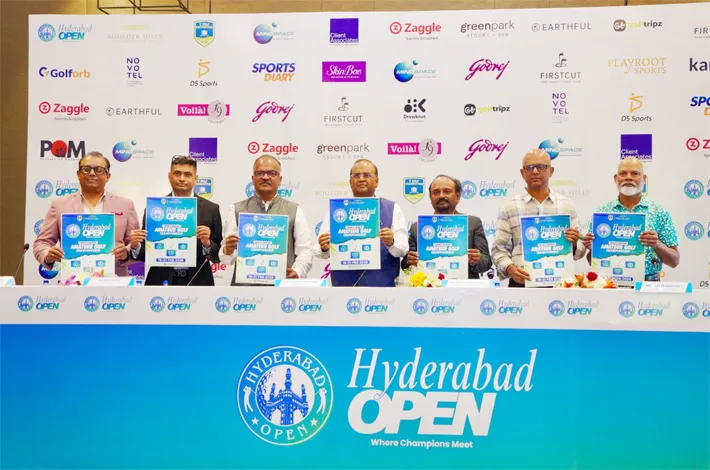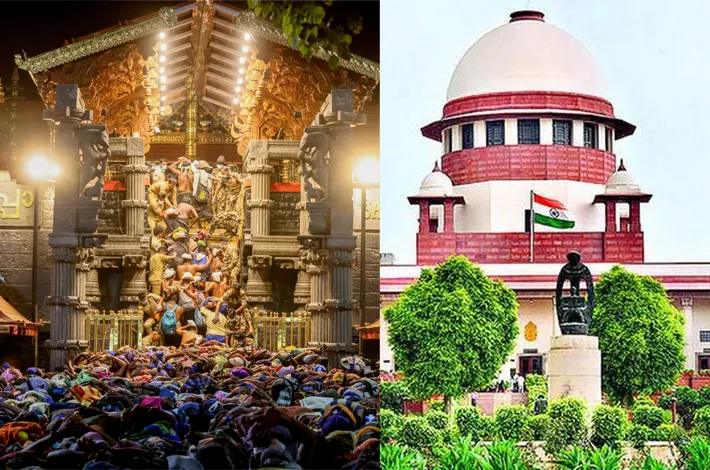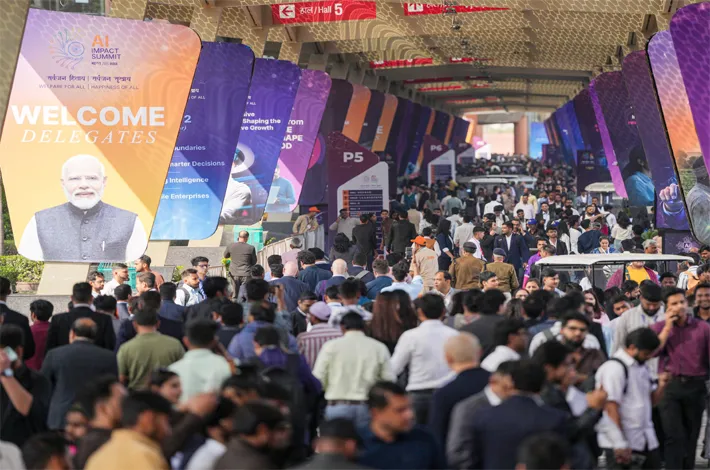Idli Weeps, Samosas Cheer!
27-09-2025 12:00:00 AM

Protests are bubbling like overfermented batter. In Hyderabad, the "Idli for Equality" movement plans a flash mob: Hundreds flipping dosas in unison outside the GST office, chanting, "Flatten the tax, not our spirits!"
In a move that's left South India's breakfast tables steaming with more than just coconut chutney, the latest GST reforms have slapped a sneaky 5% tax on beloved staples like idli and dosa, while their North Indian counterparts—chapati and samosa—lounge about at a smug zero percent. It is not a joke but a fact. You read that right: the fluffy, fermented rice-lentil darlings of the South are now fiscal felons, while the wheaty flatbread and deep-fried potato pocket from the North get to party tax-free. It's as if the GST Council held a vote and forgot to invite the dosa guy because he was too busy flipping sides.
Imagine this: It's 7 a.m. in Chennai. Raju, a harried office-goer, stares at his plate of two idlis drowning in sambar. "I used to think inflation was my biggest enemy," he sighs, spoon in hand. "Now it's the government taxing my morning motivation. Five percent on idli? That's not a tax; that's emotional blackmail!" Across the Vindhyas in Delhi, meanwhile, Priya rolls out a chapati with the glee of a lottery winner. "Zero tax? It's like the Finance Ministry whispered, 'Roti for all, but only if you're from here.' My samosa vendor? He's handing them out like campaign promises—crispy, golden, and utterly untaxed." According to the Central Board of Indirect Taxes and Customs (CBIC), idli and dosa batter—and by extension, the steamed and griddled wonders themselves—remain firmly in the 5% slab, a rate unchanged amid the reforms that gifted nil rates to "khakhra, chapathi or roti." Parathas and parottas? Also zero, down from 18%. Samosas, those oily ambassadors of Indo-Pak fusion cuisine? Slipping into the nil category under savoury exemptions for certain snacks, or so the vague fine print suggests—because nothing says "fair taxation" like letting a fried triangle dodge duty while a plain steamed puck pays up.
This isn't just a tax tweak; it's a full-blown culinary civil war. South Indians, long accustomed to being the nation's spice overlords, now feel like the underdogs in a bad Bollywood plot—complete with slow-motion close-ups of crumbling idlis under the weight of fiscal injustice. "We've given the world IT hubs, yoga gurus, and filter coffee that could wake the dead," laments Dr. Lakshmi Iyer, a culinary economist from a very Namma Bengaluru think-tank. "And in return? A 5% GST stab in the back. Meanwhile, the North's got tax-free naans and now samosas that are basically government-subsidized snacks. It's discrimination wrapped in dough!"
The reforms, unveiled on September 3 by Finance Minister Nirmala Sitharaman as a "Diwali gift" ahead of Navratri, aimed to slash rates on essentials, moving most daily goods to 5% or nil slabs. Unpacked pasta and cakes joined the 5% club, UHT milk and paneer went nil, and even pizza bases got a breather. But when it came to breakfast, the North-South divide emerged sharper than a dosa edge. Hoteliers in Tamil Nadu are up in arms—literally, with ladles raised in mock rebellion. "Rotis are nil, parathas nil, but our idiyappam and puttu? Still simmering at 5%," fumes Murugan, owner of Murugan's Idli Shop in Madurai. "It's like the GST Council googled 'Indian bread' and decided anything flatter than a map of Uttar Pradesh qualifies for exemption. What about our dosa? It's not just food; it's art! A crispy canvas of fermentation, now taxed like it's imported caviar."
And oh, the samosa schadenfreude. In Mumbai's bustling markets, samosa stalls are booming, vendors cackling as they pocket the savings. "Zero GST? My potatoes have never felt so patriotic," grins Ali Bhai, a veteran fryer whose daily output rivals a small army's carb intake. "Southies complain about idli tax? Tell them to deep-fry it next time—maybe it'll qualify as a 'savoury snack' and sneak into nil." But let's be real: samosas, those humble heroes of chai-time gossip, have indeed dodged the bullet, lumped into the broad exemptions for certain ready-to-eat fried goods under the revamped slabs. No wonder Twitter—sorry, X—is ablaze with memes: an idli with teary eyes captioned, "Steamed with rage," next to a smug samosa flexing, "Fried and free."
Politicians, predictably, are pirouetting around the pothole. BJP's North Indian heavyweight Rajnath Singh quipped at a rally, "Chapati is the backbone of our nation—tax-free to keep the spine strong!" While DMK's MK Stalin fired back on X: "If idlis are 5%, we'll rename them 'Modi-lis' and export the tax to Delhi." GST was sold as "One Nation, One Tax," but now it's "One Nation, Two Breakfasts"—one subsidized, one surcharged. Economists warn this could widen the fiscal flavor gap, with South Indian eateries hiking prices by 3-4%, turning a Rs 50 dosa plate into a Rs 52 guilty pleasure. "It's not just money," says nutritionist Priya Menon, "it's cultural erosion. Idlis are low-cal, heart-healthy; samosas are calorie bombs.
Tax the healthy one? That's like fining joggers while subsidizing couch potatoes."
Protests are bubbling like overfermented batter. In Hyderabad, the "Idli for Equality" movement plans a flash mob: hundreds flipping dosas in unison outside the GST office, chanting, "Flatten the tax, not our spirits!" Kerala’s appam artisans are threatening a "pancake blockade," while Karnataka’s ragi mudde makers (taxed at 5% too) ponder allying with the millet lobby for a nil revolt. "We've got the spices, the software, and now the grudge," says activist Viji Nair. "Time to spice up this tax code before it curries our favor no more."
As the sun sets on another divided dinner—perhaps a tax-free rajma-chawal up North, a taxed-upma down South—one can't help but wonder: Is this the end of GST harmony, or just the beginning of a great Indian breakfast bailout? Will idlis rise (tax-free) like dough, or will they stay flattened under fiscal flatulence? Only time—and maybe a cheeky council U-turn—will tell. Until then, South India bites back: One taxed idli at a time, with extra chutney for the sting.
Let Nimmy Aunty meanwhile, remove Idli, Dosa from her breakfast and substitute them with Chapati and Samosas!








